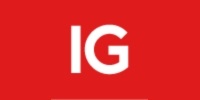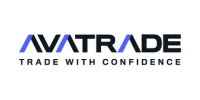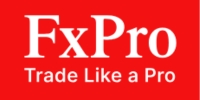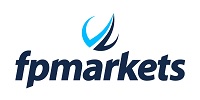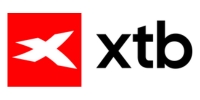It’s been mentioned time and time again how important it is to find a forex broker you can trust and what a vital decision it is to make sure your trading account provides all the functionalities you need to be a successful trader. The comparison table below lists only regulated and reliable forex brokers. Finding the best platform and FX trading account will reward you in the long run.
Top Forex Brokers
Pepperstone: Good for beginners for education and tight spreads
Spreadex: An ideal choice for beginners due to its simplicity
City Index: Provides advanced trading tools and features
IG: A market leader but too complicated for some traders
ActivTrades: Best suited for Islamic accounts and analysis
Trade Nation: Fixed spreads and a variety of trading platforms
Our broker comparison methodology
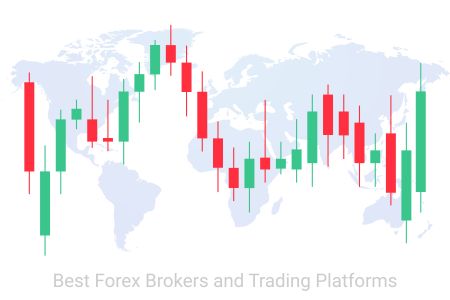
Forex Brokers: Key Points to Keep in Mind
Broker
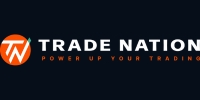
Platforms
Features
Open Account
73% of retail investors lose money when trading forex (CFDs) with this provider
Notable Benefits
Broker

Platforms
Features
Open Account
72% of retail investors lose money when trading forex (CFDs) with this provider
Notable Benefits
Broker
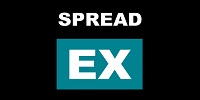
Platforms
Features
Open Account
61% of retail investors lose money when trading forex (CFDs) with this provider
Notable Benefits
Broker
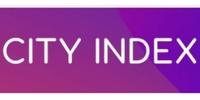
Platforms
Features
Open Account
69% of retail investors lose money when trading forex (CFDs) with this provider
Notable Benefits
Broker

Platforms
Features
Open Account
81% of retail investors lose money when trading forex (CFDs) with this provider
Notable Benefits
Why Compare Forex Brokers?
The trading platform that they use – web platform , mobile and tablet, MetaTrader 4/5, social trading. This is very important, especially in the UK and Australia, as where and what devices you can place trades on gives the customer the option to check, close, open and amend trades anywhere if you are using the forex broker on a mobile.
And finally the key spreads and margin you need to make a specific trade. This is helpful to choosing the best broker for the different types of trader your are (don’t be afraid to compare forex platform if you’re a beginner). For example, if you are a scalper the best forex broker for you would be to have very tight spreads and to have them fixed would be even better.
So whether it’s lower trading costs that catch your eye, which make it easier to profit from market movements, or higher degrees of leverage which up the ante and facilitate larger returns, comparing brokers like-for-like is the only way to be sure you’re getting the best terms.
Our easy comparison table is designed to simplify your choice to finding a top broker, presenting the leading forex brokers in a manageable format for traders to compare and find the best deal for their trading needs. And with each table you can also read reviews of each of the brokers in our comparison list.
Competitive Spreads and Reliable Platforms

Trading in the forex markets can be a costly business, and depending on the broker you trade through, these costs can account for a healthy chunk of trading returns. Payable at multiple different levels, the commissions and fees structures in place across the industry are something that traders need to be aware of before entering into a position, in order to understand the thresholds for breaking even and profiting on an individual trade. But beyond knowing what fees are in place, traders need to be able to understand why they are accrued, and to make calculations on the fly as they assess the viability of one trade over another.
Getting to grips with the costs and fees can be an eye-watering task, particularly for those that don’t enjoy working with percentages. However, such is the importance of the costing structure to the forex trading puzzle that it’s crucial to understand what you’re paying, what it’s going towards and how you can reduce the impact of these costs on your trading.
What Am I Paying For?
Forex trading is a facility provided by brokers to their clients in exchange for payment. This payment comes largely in two distinct stages – commission on the trade and the financing costs applicable to the leverage provided. Wrapped up within each of these costs are the costs of doing business for the broker, including actually executing the trades in the forex markets on behalf of the trader. While the broker step might seem arbitrary, it is essential in providing a link to the markets and therefore traders have to consider the costs and profit portion to be paid to the middleman for brokering the deal.
Different brokers offer differing levels of service, and some charge in order to reflect the degree of input they have on the trading process in terms of advice and guidance to traders. In these scenarios, traders tend to be paying more significant costs representative of the extended service level being offered by the broker.
Commissions
The commission payable in forex trading accounts directly for the costs of trading in the forex markets, covering the broker’s profit share for facilitating the transaction. They are not charged as a percentage of the trade in the same way as with other investments, nor as a flat per transaction fee, but instead wrapped up in the spreads offered on the various currency markets. The spread is the difference between the bid and the ask price of a market at any given time, and this gap reflects directly the proportion of each trade that goes to the broker as commission. Spreads can be computed in several different ways, notably fixed, floating and percentage based spread structures.
Financing Costs
Alongside the broker’s commission are financing costs, which are a secondary way in which brokers make money. In order to provide the leverage necessary to fund the relevant transactions that traders take, the broker has to lend the money to make up the difference and allow traders to benefit from leveraged exposure. This leverage comes at a price, both to the broker and ultimately the trader, and is charged on positions that roll over from one trading day to the next. These financing costs are charged on the basis of the entire transaction (including the margin amount), and are levied at an applied annualised rate daily. Thus the longer a position remains open in terms of days, the more considerable these costs will become.
Is Forex Market Regulated?
Because the forex markets are decentralised, there is no set regulator or authority responsible for overseeing the markets. This is different to most financial markets, where the relevant body in the jurisdiction in which the market is administered has oversight over the marketplace and the behaviour of those that trade in it. This should be a cause for concern for traders, and those engaging in forex should be careful as to whom they are dealing with to ensure they’re not getting an unfair deal. While the forex markets are poorly regulated by comparison, they are not without some degree of regulatory intervention, although it tends to be much less direct than in other markets.
Forex is traded by far and away in the most substantial volumes by those in the wholesale markets – almost exclusively large banks and financial institutions. These institutions usually have the largest degree of influence over how the markets shape up, and are themselves intensely regulated to ensure that they operate above board. While this doesn’t guarantee traders won’t get a raw deal, it does mean that the markets are regulated to some extent at their core, which can give traders some confidence in the integrity of the international financial markets.
Which Broker Should I Choose?
There are countless different brokerage options in most countries that forex new and experienced traders can choose from, with each having its own rules, policies, costs and service offering. Unfortunately, most traders lunge into a decision without the right degree of knowledge and understanding, often at the earliest point in their trading career, before living to regret the decision. Even fractional differences in pricing or leverage can make a world of difference when it comes to determining the profit or otherwise from a trade, and the more trades you execute the more these additional costs add up. Choosing the wrong broker early on can spell disaster for you and your trading account for years to come, and it is always harder to switch than it is to make the right decision first time round.
Identifying the most cost effective forex brokerage solutions from the best providers is an important step in laying solid foundations for a successful trading account. This often means comparisons between a wide range of different options to determine the optimum, which in turn creates a further research burden for traders to endure. Nevertheless, taking the necessary steps to research and sort the best options available can pay dividends in terms of saving money both now and in future, and in guaranteeing a stable, legitimate broker partner for your forex trading.
What Should I Look For In A Forex Broker?
Online trading platforms play a central role for any forex trader, and depending on the strategy you’re using and the frequency of trades you are envisaging making, it can be extremely important to get the right platform in place based on the broker rating, costs, and reputation. Most forex traders have their own system in place for accessing the markets, which will be either proprietary or delivered by a third party, and the look and feel of these applications can vary along with the range of orders and options available for traders to execute. At the same time, online platforms are where traders will spend most of their time and where they will execute their market orders, so it pays to find an application that seems intuitive to use and fits in with the demands of your chosen trading strategies.
There are a variety of forex different platforms to choose from which vary broker to broker, and while the software platform itself shouldn’t necessarily make your mind up as to who to trade with, it does nonetheless present as one important factor of many in influencing how trading decisions are made. Through the use of demo accounts, it can be possible to trial a number of different platforms, especially for beginners, to identify which are most effective and most suited to your fx trading style.


